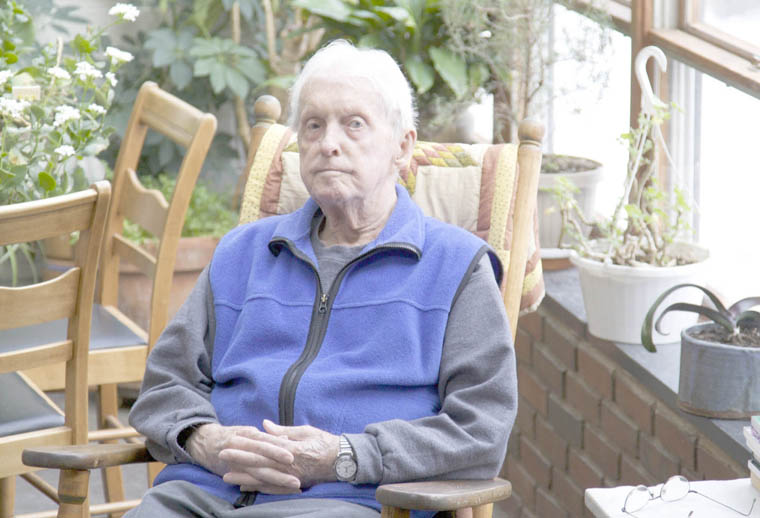By Renée K. Gadoua | Contributing writer
The children, nieces, and nephews of the late activist Berrigan brothers joke about how people react when they recognize their last name. People “respond either with judgment or stardust, depending on where they sit on the political spectrum,” Frida Berrigan, daughter of Philip Berrigan, said at an Oct. 22 event marking the 50th anniversary of the Catonsville Nine.
Her father, then a Josephite priest, and uncle, Jesuit Father Daniel Berrigan, were among nine activists who burned draft records in Catonsville, Md., to protest the Vietnam War. News of the dramatic May 17, 1968, protest and its high-profile trial propelled Daniel Berrigan (1921-2016) and Philip Berrigan (1923-2002) into the nationwide debate about the Vietnam War and the broader question of how Christians should respond to it. The action inspired at least 250 draft board raids during the Vietnam War.
Along with Jerome Berrigan (1919-2015), longtime Syracuse educator and parishioner of St. Lucy’s Church, the brothers’ antiwar and civil rights actions led to jail terms and debates on the role of civil disobedience in political activism. Two of Philip’s children shared insights into the joys and burdens of growing up Berrigan at a Syracuse University event.
Frida Berrigan, of New London, Conn., and Jerry Berrigan, of Kalamazoo, Mich., spoke at a program titled “The Berrigan Brothers and the Catholic Social Justice Tradition in Syracuse.” The event was the seventh annual Borgognoni Lecture, which honors the late Monsignor Charles L. Borgognoni (1923-2007), who served as Syracuse University’s Catholic chaplain from 1962 to 1991. He also directed the Pompeian Players, a musical theatrical group, from 1950 to 1986.
The panel also featured Fred Boehrer, co-coordinator of Emmaus House (Albany Catholic Worker). Kathleen Rumpf, a longtime Syracuse activist who lives in Florida, talked about the Berrigans’ influence on her activism and work with Jail Ministry.
Jerry and Frida Berrigan, along with sister Kate, grew up at Jonah House, a Catholic Worker house in Baltimore started by Philip Berrigan and their activist mother, Elizabeth McAlister. The family shared a brick row house in a poor African American neighborhood with activists and people down on their luck.
“Our home life was ascetic to the extreme,” Jerry said, recalling clothes from the thrift store and the rare pair of new shoes. He described attending protests marking the Feast of Holy Innocents, Holy Week, and the anniversary of the Hiroshima and Nagasaki bombings.
It wasn’t unusual for the parents of their classmates to spend time in jail, Frida noted, although “the reasons why they were there were different.” While she was in fourth, fifth, and sixth grades, her parents spent 20 months in jail. She recalls visiting her dad in jail “when the kids were going on an amusement park field trip.”
Now Jerry and Frida explain to their own children why their grandmother is in jail. McAlister, 78, is in jail awaiting trial for an April 4 protest at Naval Submarine Base Kings Bay in Georgia. She is among seven Kings Bay Plowshares activists, whose protest marked the 50th anniversary of the assassination of the Rev. Martin Luther King Jr.
Phil and Dan Berrigan led the first Plowshares action in 1980, when they trespassed at a General Electric Co. nuclear missile plant in King of Prussia, Pa. They poured blood and hammered warheads to demonstrate their opposition to weapons in an action inspired by the prophet Isaiah’s call to “beat their swords into plowshares.” More than 100 Plowshares demonstrations have taken place across the world.
Le Moyne College marked the Catonsville anniversary Oct. 24 with a screening of the 1972 movie “The Trial of the Catonsville Nine.” The movie is based on the 1971 book of the same name by Daniel Berrigan, who taught at Le Moyne from 1957 to 1963. Berrigan’s book is based on transcripts from the Oct. 5 to 9, 1968, trial. All nine Catonsville activists were found guilty and sentenced to a total of 18 years in jail.
“My father went to jail over and over again, undaunted, unbowed,” Frida Berrigan said. Despite his larger-than-life public persona, he was the dad who tied her shoes and rolled up her sleeves and “the man who loved a good joke and whose idea of a good lunch was to open mismatched soup cans picked at random from the pantry.”
On Thanksgiving 1983, when Frida was 10, Jerry was 9, and Kate was 2, McAlister, Rumpf, and six others entered Rome’s former Griffiss Air Force Base and hammered and poured blood on B-52 bombers. Asked why she risked jail, McAlister responded, “‘Children both make this kind of act more essential and more difficult,’” Frida said. “It’s poignant to read of her kind of considering us in such a way.”
Jerry described his childhood of protests and prison visits as “right on the line of what my young eyes could bear to witness.” Visits to the Syracuse home of Uncle Jerry and Aunt Carol, though, provided respite to the intensity. Christmas there “was a fiesta with food and relatives and presence and music,” Jerry said.
The siblings said their father and uncles acted with conviction and were prepared for the consequences.
“If you were inspired, challenged or troubled, then you might find yourself moved to pick up a portion of this burden as well,” Jerry said. “It is our sincere hope that you will be so moved.”
Renee K. Gadoua is a freelance writer and editor. Follow her on Twitter @ReneeKGadoua.





